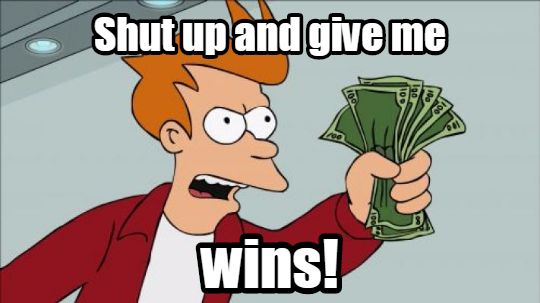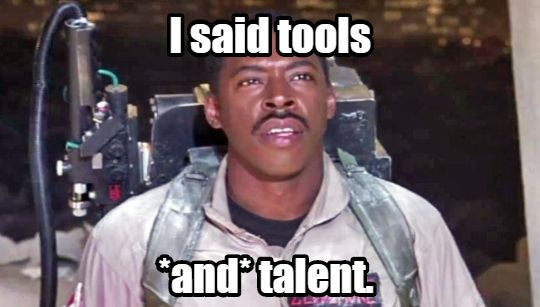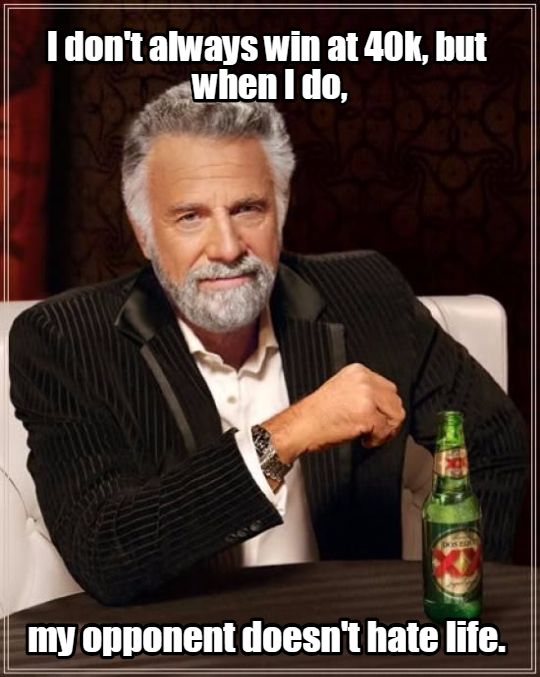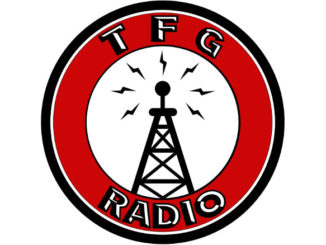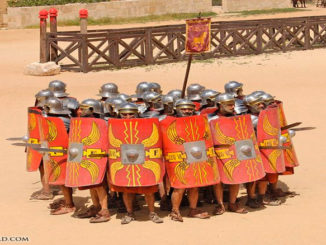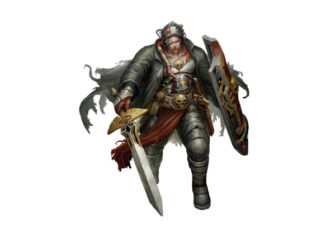
Ok, so Salty John and Danny pooled their salt together for this one. We bet this one will rile some feathers, but here goes:
We are ok at this game. We wouldn’t call ourselves the greatest players because we can realistically identify that we are not. We don’t win GTs, and it is rare that Danny wins the local RTT, and it rare that John gets a chance to play in them lately. We don’t put in the time and effort required to be good mostly because we have jobs and families that tend to take precedence over gaming.
Danny admits he is an ok player, maybe good, and John is good but perhaps limited in time, but we both know that we are not bad players for several specific reasons.
There are some tell-tale signs of a bad player.
Sign 1:
I didn’t lose, my dice fucked me.
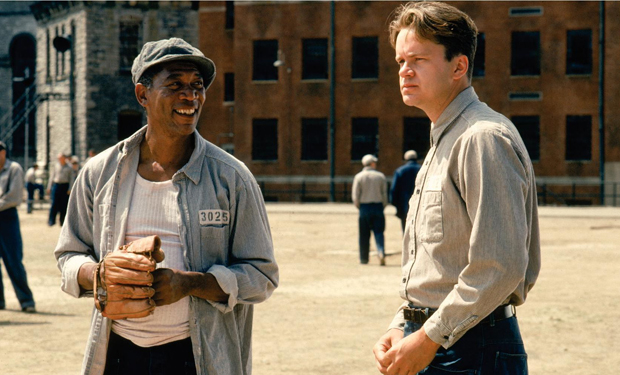
As the man said, “Everybody in here is innocent, didn’t you know that?“. We all have our weak moments when we look for at our dice and feel betrayal. “All I needed was a 4 inch charge to win the game. That’s all I needed. I even had a reroll. The dice just cost me the game”.
Yes and no. In that specific, very narrow view, yes, the dice cost you the game, but really, why was your victory contingent on one dice roll? Chances are that you made poor plays earlier in the game, and these poor plays resulted in that situation. Dice rolls aren’t in a vacuum; your tactics in game as a player dictate the terms of those dice rolls. The best players we’ve seen in 40k, Fantasy, Warmachine, X-Wing, or even poker do not rely on a single bit of luck to carry them through the day; in fact, they are acutely aware that luck will likely punish them, so having redundancies and backup plans are a necessity. Sometimes they win out of luck, but that is when they needed luck because they were losing.
Think of it this way: If you were winning so easily, why did one dice roll determine your victory? One would think that if you had the game in hand, you could afford to absorb a bit of bad luck, and if you in fact do have the game already won, you will be able to take a few flubbed rolls. If it is all coming down to one roll, it means the game is close, which means either you did not play as well as you thought, your opponent played far better than you are giving him/her credit for, or a combination thereof.

Many games, especially non-book mission 40K and Warmachine, can be won with little good luck. Playing the mission, model placement, target priority, all of these things have more of a hand in your victory than just how below or above average you roll. A key part of navigating this game is learning how to adapt your plans because of rolls, either how to press the advantage when you got hot or how to pivot focus when your dice went cool. Good players adapt to this, and if they can help it, they don’t let the game rely on a single dice roll. This is what makes high level play interesting to watch: so much of it is the players navigating this back and forth, but this is also what makes it appear boring to some: if you can’t see the matrix of what is happening on the table, it doesn’t look like anything is happening at all.
Of course, bad luck happens, and it can justifiably be frustrating when nothing goes your way, but unless the dice gods really, really just chose you to crap on that day, chances are that a few bad rolls don’t decide a game unless you already made decisions that put you at a disadvantage.
Yes, there are those times when one bad roll (or a series of bad rolls) costs you the game regardless of your own ability; this is a dice game after all. If you play enough, the randomness of this game will bite you hard, but good players shrug it off while bad players only place the blame on luck. Of course, games where luck plays a huge role like unmodified D do skew this a bit, so we aren’t saying you can never be salty about dice because sometimes those little cubed punks deserve the salt, but you have to keep it all in perspective.
Bad players always blame luck instead of blaming themselves and learning from their mistakes.
Sign 2:
My opponent cheesed his way to victory
“Man, some people just have the cash to netlist a solid army, buy it, get somebody to build it/paint it quick, and then boom, they just dominate with the latest cheez out there, amirite?”
Sure, perhaps there are a few out there who do that, but even then, winning with a netlist is easy against a weaker player, but it definitely is not easy against a strong player. Yes, some lists are just better than others, and you can see this in most games or sports. There are metas; there are builds; there are play philosophies that tend to do better and have statistical advantages over others. We definitely would not say that Orks are on the same level as Eldar; that’s insane.
Yet, we will definitely make the point that a good Ork player will beat a bad Eldar player more times than not. There is a reason when you look at ITC rankings or big GT top 8s that a lot of the same names pop up over and over again. It is not because of their armies; it is because they are good players. Danny saw plenty of the filthiest lists at LVO, but for the folk who made top 32, they were the best players on that specific day, and for the most part, it was the people you would expect to make top 32.
If list was all that mattered in the game, then a new player with a mean army would beat an old veteran with an average army every time, but that is not what happens. Lists give you an edge for sure, but bad players over-inflate that edge. A mean, highly tuned tournament list gives you an advantage over an average list, but that advantage is not insurmountable nor is it a guarantee. The best players pilot good lists (the best use the best tools they have), but they are the best because they are legitimately good at the game.
To use a real-world example: In competitive shooting, the rifle matters as a highly tuned m1A with the best optics around is kind of good for long-range, precision shooting, but guess what, if we gave an average joe a 10,000$ rifle system, he/she still wouldn’t come close to competing with the best shooters with iron sighs and stock military rifles. At the highest levels of competition, gear and such do make a difference, but that difference is only truly exploited through skill.
So yes, a player with a super netlist army of doom can beat you, and if he/she is consistently beating you, it’s not the army, it’s you.
Bad players constantly blame armies for wins and losses.
Sign 3:
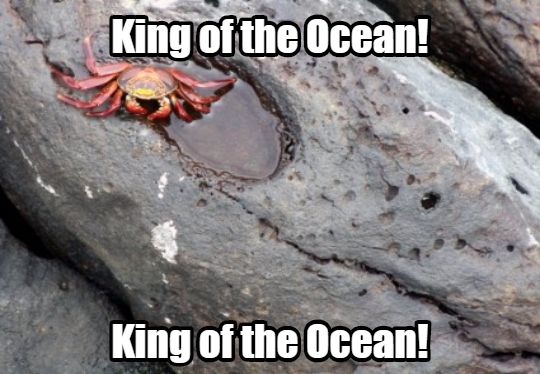
I haven’t lost in X years…
So why would anyone in their right mind say that an undefeated streak is a sign of a bad player? Because we are willing to bet dollars to donuts that an undefeated player for any major length of time is just a big crab in a little tide-pool.
Good players lose. Yes, they lose much less frequently than they win, but they still lose, often because they choose to play bad matchups to practice list-fluency and tactics. If you really want to develop skill, you have to push yourself, and playing games that are clearly in your favor do not foster any development of skill. Just like a muscle, you have to push it beyond its normal boundaries to get it to grow. Also, the best players play against the best players, so while we definitely see some of the same names pop up in GTs, it is still not just the exact same person winning every single event that they attend.
Often, the big crabs simply play people they know that they can beat or tune their lists before the game to ensure that they have the tools to dominate. If that’s how you want to roll, go on with it, but if you want to be able to claim to be a good player, you need to be able to play games where you are at a disadvantage and still win. If you play warp-spider spam, play against flyrants in kill points. If you play Tau gunline, play against superfriend deathstar in relic, etc. Good players practice in adverse conditions to develop the necessary skills to be able to succeed at an event where there will be adverse conditions.
Hell, even if you have no desire to play in any major GTs or even local RTTs, if you want to be able to claim any real skill at this game, you have to play games where it is easy for you to lose. Playing the same three friends over and over again is fun, and again, if that’s what you do, have fun, but if you want to be able to beat your chest that you’re a high-level player, then you need to demonstrate that you can win when the odds are not in your favor.
Sign 4:
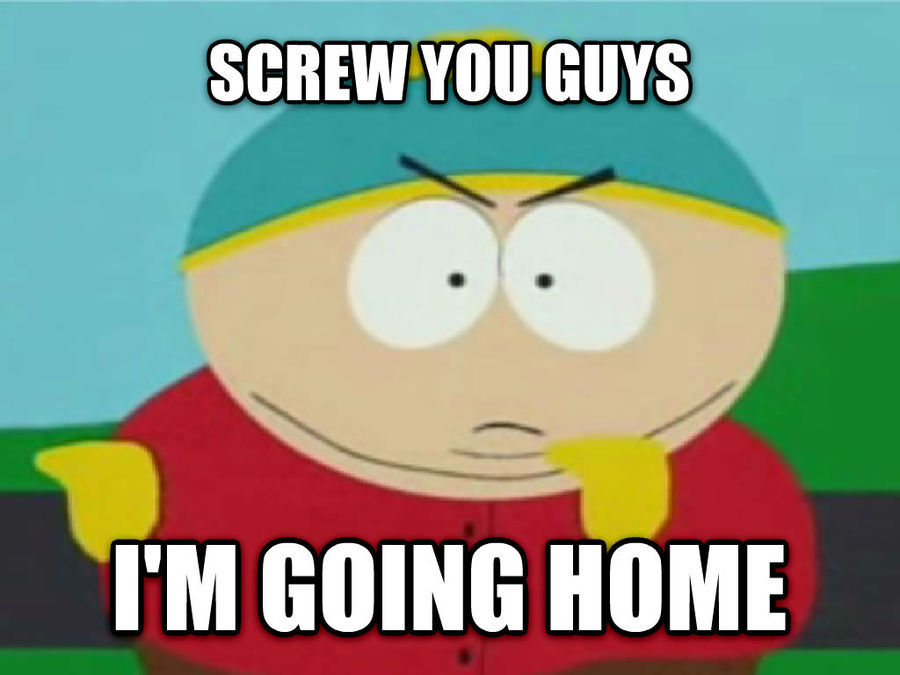
“This is broken! I won’t play it unless we use my house-ruled nerf! Everybody on Dakka Dakka/Warseer/BoLS thinks it is a good rule. I haven’t played it but I know it’s broken”.
In the age of the internet, everyone thinks they know the score (hell, the purpose of this article is two jackasses telling you what they think the score is), but bad players will constantly tell others that they both A: know what the real deal is and B: refuse to acknowledge that theory and practice are different.
With the wonders of social media, internet comments, and forums, we are able to express ourselves to our peer groups with such lightning speed and constant influx that it becomes odd when you are the type of person who doesn’t constantly share their thoughts. All of the “is this good or bad for society” debates aside, the reality is that we share our thoughts much more than we ever did, but the problem for our game and for a player is that a lot of people share their thoughts without actually having the experience necessary to inform those thoughts.
A bad player will dismiss something out of hand immediately because it doesn’t align with their concept of how this game works. Conclave too strong? Electrodisplacement? Full Knight armies? Yes, these things are strong and provide specific counters to specific army builds, but they are not game breaking the way a 2++ rerollable save is (needing 36 wounds to force a single failed save is mathematically the best way to play and makes a unit mostly immune to everything in the game save a 6 on the D or Stomp chart).

Good players will temper their expectations and theories with real practice. They will go against it; they will play it. Good players understand that all the theory in the world doesn’t give the full picture of a situation, and with the infinite variables in a single game from dice rolls to opponent counter-plays, there is no real way to determine how good something is until you’ve had some hands-on experience. In short, a good player is willing to test their theory and change their understanding if experience tells them otherwise.
It is not always easy to get a few games in a week, but then the best players play constantly. Often, the loudest voices when there are no models on the table are the voices of those that rely solely on their own mental gymnastics rather than tangible table time.
Bad players avoid testing their theories because they don’t want to be wrong.
In the end…
Here’s the thing: It is ok to not be good at this (or any) game. This is a hobby after all, and as long as you and your friends are having fun, who cares? No one should attach their feeling of worth and their enjoyment in this hobby to their Win-Loss record. The problem arises when people start to bluster on the internet, at the local game night, or try to make some larger comments about “how things should go”. The problem only worsens when bad players go to tournaments or even a pick-up game and then complain loudly, throw dice, or in general, just act like jerks because they are losing. Being a bad player doesn’t equal a player who doesn’t win all the time; a bad player is ultimately a poor opponent who makes participating in this hobby worse for those around them.
Are you not “elite” ? That’s ok, we aren’t either. Do you see yourself a bit too clearly in the above? Well then, either stop the four things above and start becoming a good player, or just accept winning is not the most important thing about your hobby and be content to roll some dice with the homies because really, that is the best part of all of this.


